
Schaan: The Heartbeat of Liechtenstein
Nestled in the picturesque Rhine Valley, Schaan is Liechtenstein's largest municipality and a captivating destination for tourists. With its stunning alpine backdrop and rich cultural heritage, Schaan offers an inviting blend of natural beauty and modern amenities. This charming town is not only a gateway to the rest of Liechtenstein but also a thriving center for arts and industry, providing visitors with a unique and multifaceted experience. A walk through Schaan reveals a town steeped in history, with landmarks such as the Church of St. Laurentius, a beautiful structure dating back to the 19th century. The town also boasts the DoMuS cultural center, which hosts various exhibitions and events, showcasing the vibrant local arts scene. Nature lovers will be delighted by the numerous hiking and biking trails that wind through the scenic landscapes surrounding Schaan, offering breathtaking views of the Alps and the Rhine River. In addition to its natural and cultural attractions, Schaan is a hub of culinary delights. Visitors can enjoy traditional Liechtenstein cuisine at local eateries, savoring dishes made with fresh, locally-sourced ingredients. The town's friendly atmosphere and welcoming residents make it a perfect destination for those looking to experience the best of Liechtenstein. Whether you're exploring its historical sites, enjoying outdoor adventures, or indulging in delicious food, Schaan promises an unforgettable visit.
Local tips in Schaan
- Visit the Church of St. Laurentius early in the morning to avoid crowds and capture the best photos.
- Take advantage of the well-marked hiking and biking trails for a scenic exploration of the surrounding alpine region.
- Check the schedule at DoMuS cultural center for events and exhibitions during your stay.
- Try traditional Liechtenstein dishes at local restaurants to get a true taste of the region's culinary heritage.
- Use the efficient public transport system to easily explore nearby attractions in both Liechtenstein and Switzerland.
Schaan: The Heartbeat of Liechtenstein
Nestled in the picturesque Rhine Valley, Schaan is Liechtenstein's largest municipality and a captivating destination for tourists. With its stunning alpine backdrop and rich cultural heritage, Schaan offers an inviting blend of natural beauty and modern amenities. This charming town is not only a gateway to the rest of Liechtenstein but also a thriving center for arts and industry, providing visitors with a unique and multifaceted experience. A walk through Schaan reveals a town steeped in history, with landmarks such as the Church of St. Laurentius, a beautiful structure dating back to the 19th century. The town also boasts the DoMuS cultural center, which hosts various exhibitions and events, showcasing the vibrant local arts scene. Nature lovers will be delighted by the numerous hiking and biking trails that wind through the scenic landscapes surrounding Schaan, offering breathtaking views of the Alps and the Rhine River. In addition to its natural and cultural attractions, Schaan is a hub of culinary delights. Visitors can enjoy traditional Liechtenstein cuisine at local eateries, savoring dishes made with fresh, locally-sourced ingredients. The town's friendly atmosphere and welcoming residents make it a perfect destination for those looking to experience the best of Liechtenstein. Whether you're exploring its historical sites, enjoying outdoor adventures, or indulging in delicious food, Schaan promises an unforgettable visit.
When is the best time to go to Schaan?
Iconic landmarks you can’t miss
Vaduz Castle
Discover the enchanting Vaduz Castle, a historic gem in Liechtenstein offering stunning views and rich cultural heritage.
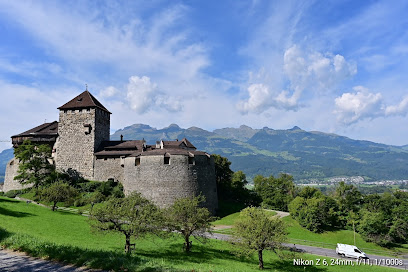
Burg Gutenberg
Experience the enchanting blend of music and history at Burg Gutenberg, a must-visit cultural landmark in Balzers, Liechtenstein.
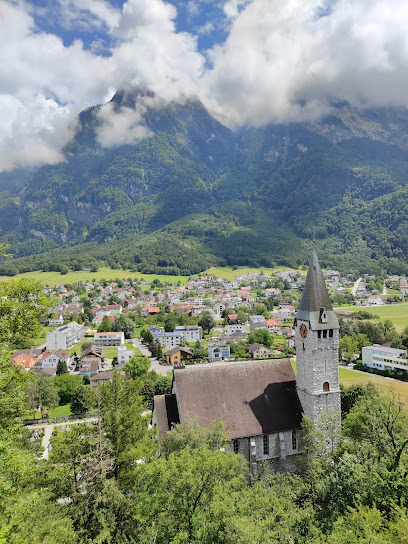
Kathedrale St. Florin
Explore the architectural beauty and spiritual significance of Kathedrale St. Florin, a must-see landmark in Vaduz, Liechtenstein.
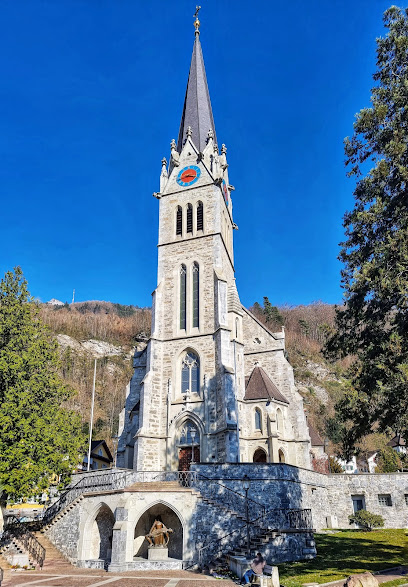
Liechtenstein Center
Explore the best of Liechtenstein at the Liechtenstein Center, your essential tourist information hub in the heart of Vaduz.
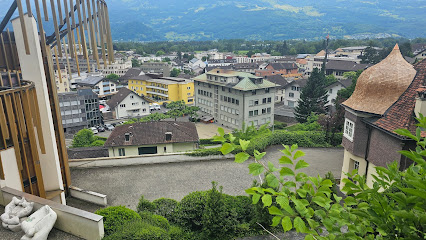
Vaduz Citytrain AG
Discover Vaduz with Vaduz Citytrain AG - an informative and enjoyable sightseeing tour through Liechtenstein's capital, perfect for all travelers.
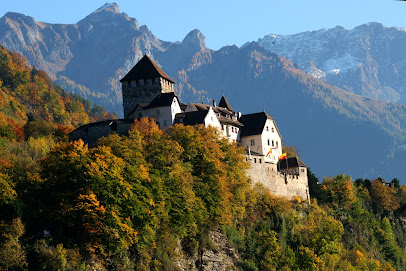
Alte Rheinbrücke
Explore the Alte Rheinbrücke in Sevelen, Switzerland, a breathtaking bridge offering stunning views and rich history along the scenic Rhine River.
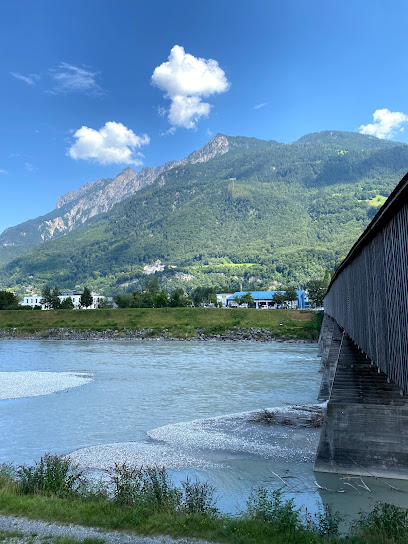
Rheinpark Stadium
Discover the excitement of local sports and events at Rheinpark Stadium in Vaduz, where passion meets stunning alpine scenery.
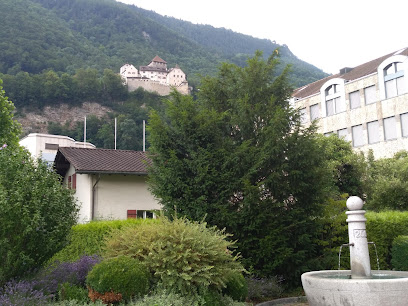
Kunstmuseum Liechtenstein
Explore contemporary art masterpieces at Kunstmuseum Liechtenstein, an architectural gem in Vaduz offering diverse exhibitions and stunning views.
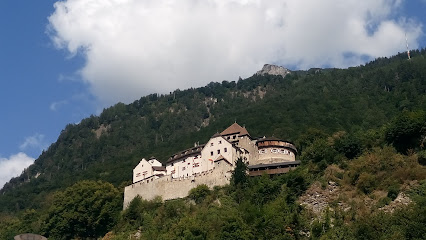
Vogelparadies Birka
Explore Vogelparadies Birka, a serene animal park in Mauren, Liechtenstein, where nature and vibrant birdlife come together for a captivating experience.
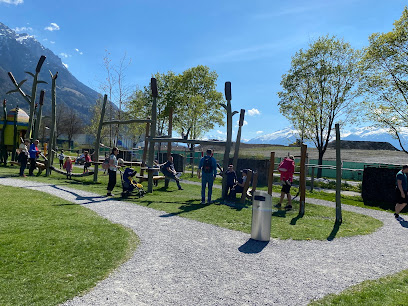
Jugendherberge Schaan-Vaduz
Discover the beauty of Liechtenstein from Jugendherberge Schaan-Vaduz, your affordable and community-oriented youth hostel in the heart of nature.
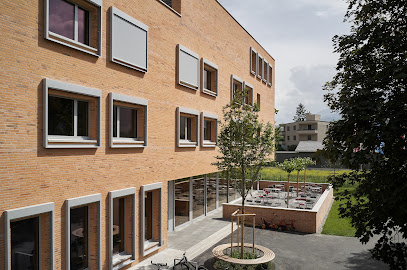
Liechtensteinisches LandesMuseum
Uncover the cultural gems of Liechtenstein at the Liechtensteinisches LandesMuseum, where history, art, and tradition come alive.
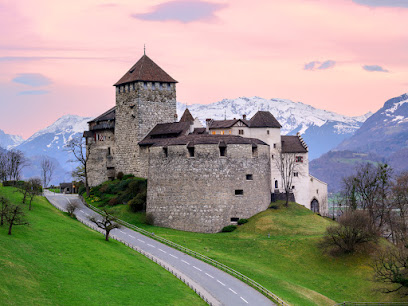
Postmuseum Vaduz
Explore the rich postal history and cultural heritage at the Postmuseum Vaduz, a captivating museum in the heart of Liechtenstein's capital.
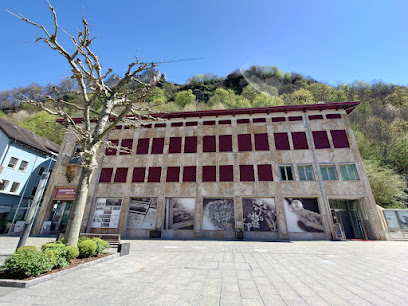
Cellars of the Prince of Liechtenstein
Experience the rich viticulture of Liechtenstein at the Cellars of the Prince, where exquisite wines meet stunning scenery in Vaduz.
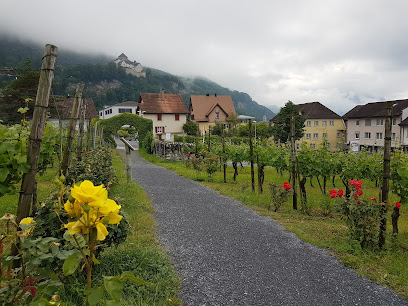
TAK Theater Liechtenstein
Discover the heart of Liechtenstein's performing arts at TAK Theater, where captivating performances await in an intimate setting.
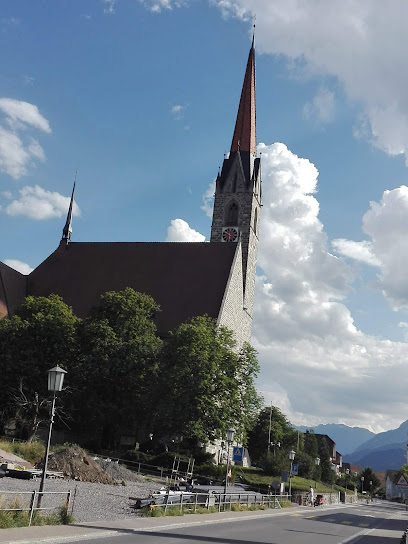
Film Club in Takino
Discover the enchanting Takino Film Club, where cinematic dreams come alive in a cozy café setting, perfect for film enthusiasts and casual viewers.
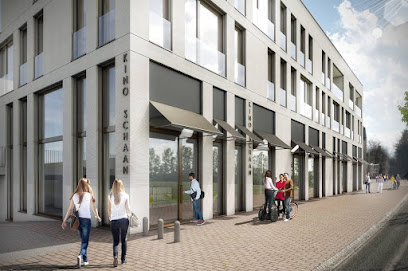
Unmissable attractions to see
Heididorf
Experience the enchanting world of Heidi in the Swiss Alps. Step back in time and immerse yourself in this classic story.
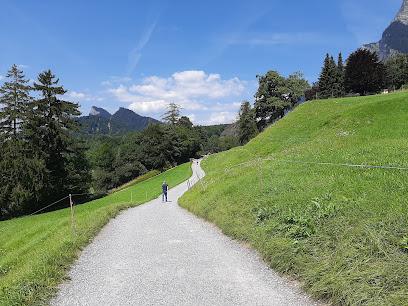
Abbey of Saint Gall
Explore a UNESCO World Heritage Site: the Abbey of Saint Gall, a historic monastic complex with a world-renowned library and stunning Baroque architecture.
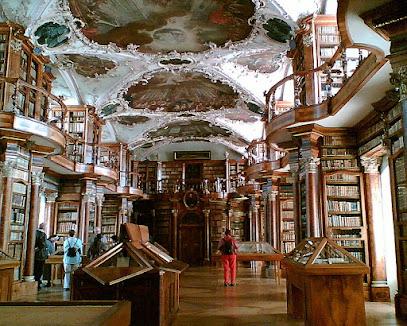
Wildpark Feldkirch
Discover native wildlife and scenic trails at Wildpark Feldkirch, a free, family-friendly nature escape in Vorarlberg.
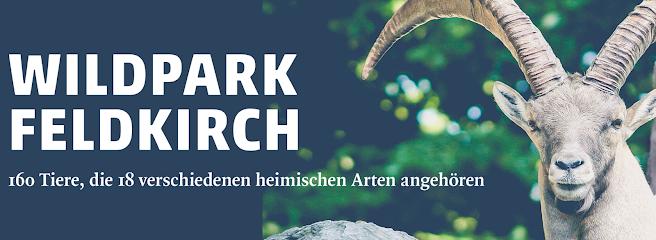
Seebühne Bregenz
Experience world-class opera and musicals on the world's largest floating stage, set against the stunning backdrop of Lake Constance.
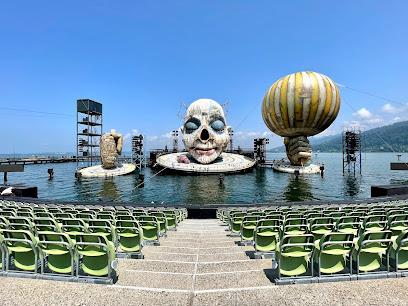
Appenzeller Schaukäserei
Discover the secrets of Appenzeller cheese at this interactive dairy, where tradition and taste come together in the heart of Switzerland.
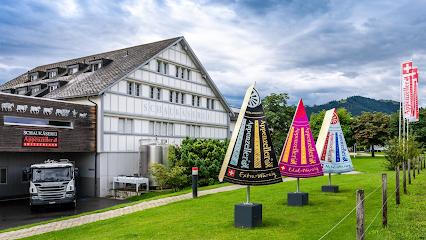
Bregenzer Festspiele
Experience world-class opera on a floating stage at the Bregenzer Festspiele, a unique cultural event on the shores of Lake Constance.
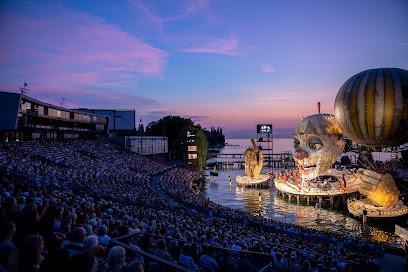
Aescher - Guesthouse on the mountain
Experience Swiss hospitality at this iconic cliffside guesthouse, offering breathtaking views and a unique glimpse into Alpine history and culture.
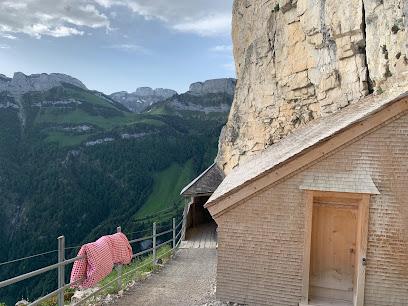
St. Gallen Cathedral
Explore St. Gallen Cathedral, a stunning Baroque masterpiece and UNESCO World Heritage site with rich history and art.
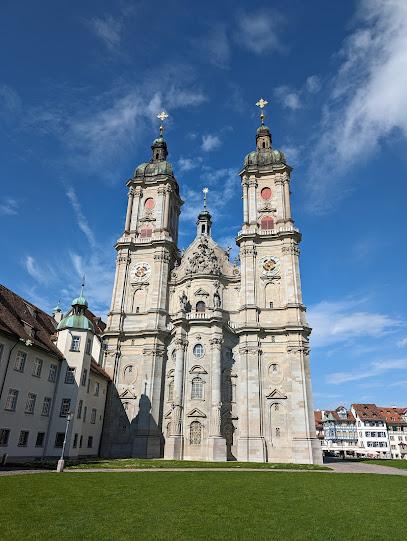
Pfänderbahn
Ascend to breathtaking views of Lake Constance and the Alps via the Pfänderbahn, a scenic cable car in Bregenz, Austria.
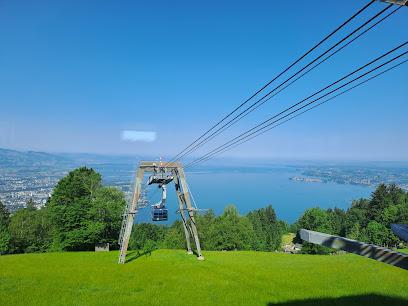
Mangturm
Explore the historic Mangturm in Lindau: a medieval watchtower offering stunning views of Lake Constance and the Alps.
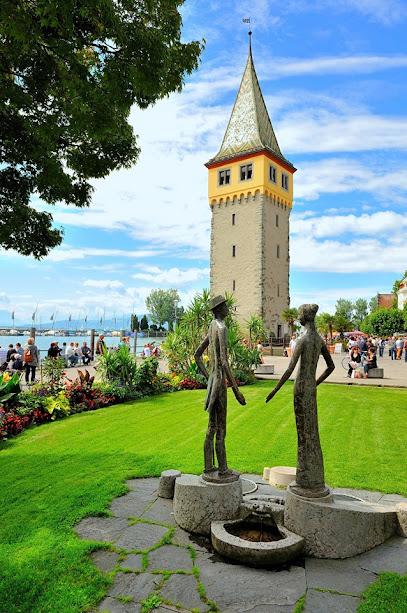
Caumasee
Discover Caumasee, Flims: A turquoise alpine lake perfect for swimming, hiking, and serene relaxation amidst stunning Swiss scenery.
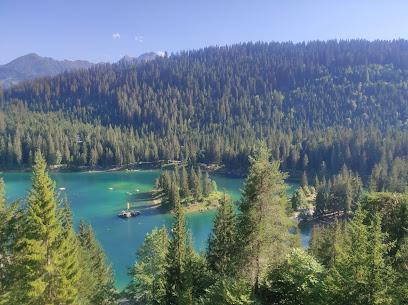
Schattenburg
Explore Schattenburg Castle in Feldkirch: a medieval fortress with a rich history, museum, and stunning views of Vorarlberg.
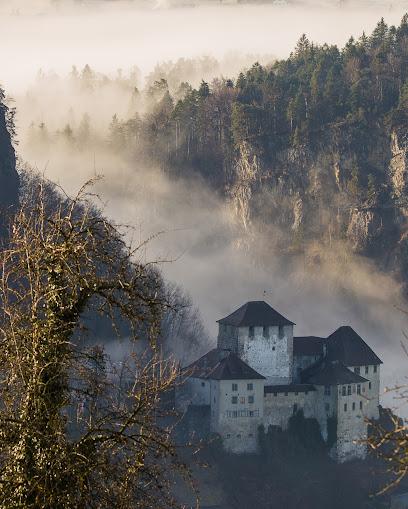
Talstation Luftseilbahn Wasserauen-Ebenalp AG
Ascend to Ebenalp via cable car for panoramic Swiss Alps views, hiking, and the iconic Aescher mountain inn experience.
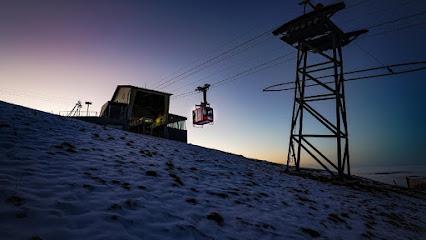
Burg Gutenberg
Explore Burg Gutenberg in Balzers, a stunning medieval castle offering breathtaking views, rich history, and cultural events in the heart of Liechtenstein.
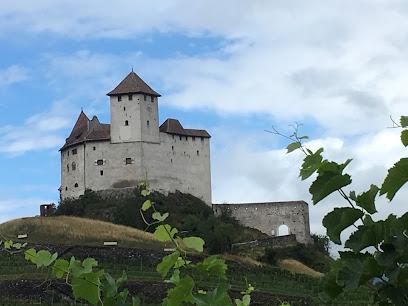
Seerenbach Falls
Experience the awe-inspiring Seerenbach Falls, a natural wonder featuring cascading waterfalls and the mysterious Rin Spring on scenic Lake Walen.
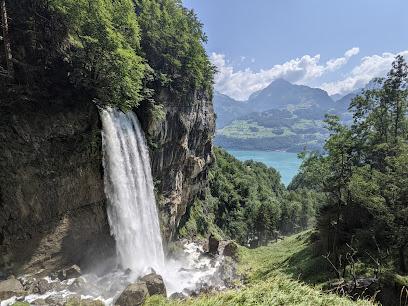
Essential places to dine
New Castle
Discover New Castle: A culinary gem in Vaduz offering local flavors and international cuisine in a cozy setting.
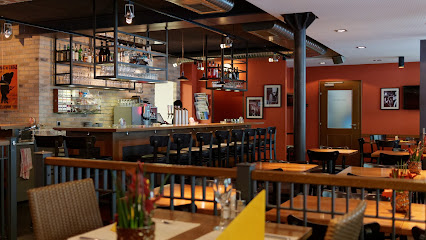
Park Hotel Sonnenhof
Experience luxury and culinary delights at Park Hotel Sonnenhof in Vaduz, Liechtenstein's premier destination for travelers seeking elegance.

Pizzeria Toscana
Experience authentic Italian cuisine at Pizzeria Toscana in Schaan—where every pizza tells a delicious story.
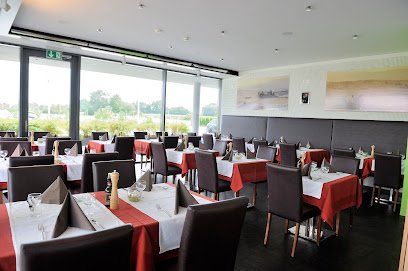
Brasserie Burg
Discover Brasserie Burg in Vaduz for exceptional burgers and Italian cuisine amid modern vibes—perfect for tourists craving delicious meals.
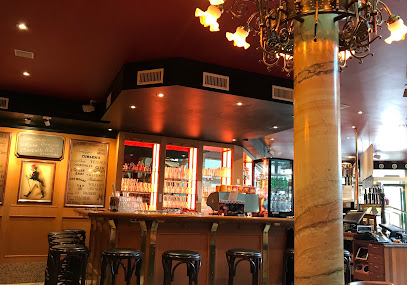
Restaurant Vibes
Discover the vibrant flavors at Restaurant Vibes in Schaan—where fast food meets culinary creativity.
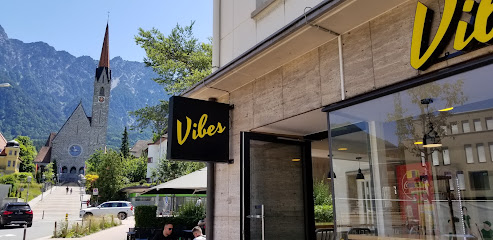
Berggasthaus Masescha
Experience traditional Liechtenstein cuisine at Berggasthaus Masescha while enjoying breathtaking mountain views in Triesenberg.
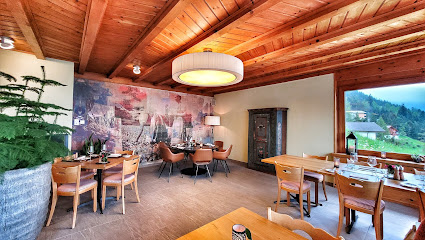
Schlössle Mahal
Experience authentic Indian flavors at Schlössle Mahal in Vaduz - where every dish tells a story of tradition and taste.
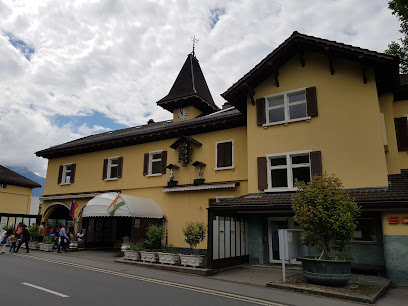
Restaurant Lio
Experience the rich flavors of Liechtenstein at Restaurant Lio – where local ingredients meet global culinary traditions.
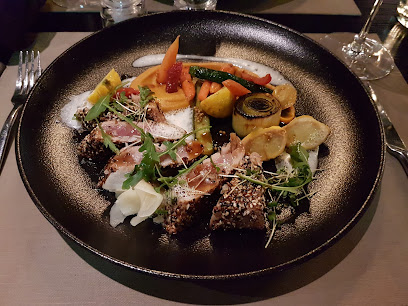
da Noi
Discover authentic Italian cuisine at da Noi in Buchs – where tradition meets flavor in every dish.
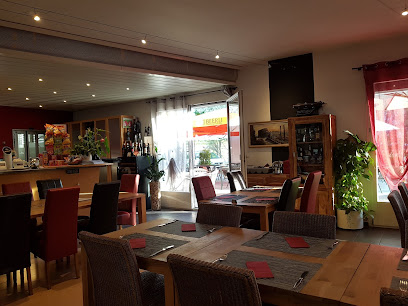
Landgasthof Au
Experience authentic Liechtenstein cuisine at Landgasthof Au - where tradition meets comfort in beautiful Vaduz.
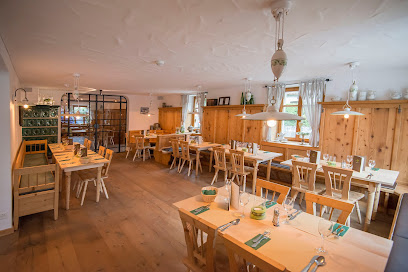
Restaurant Forum
Experience authentic Swiss flavors at Restaurant Forum in Schaan – where every meal tells a story of tradition and quality.
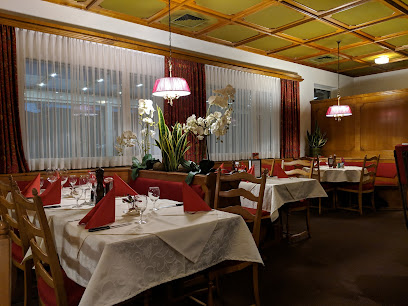
PUR - Restaurant & Bar
Experience exceptional barbecue cuisine and vibrant nightlife at PUR - Restaurant & Bar in Schaan.
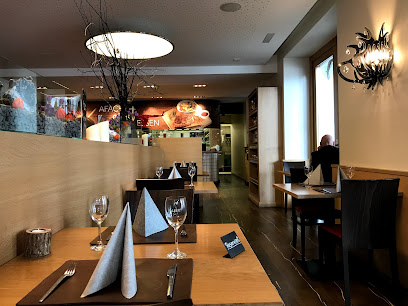
Kainer
Discover the flavors of Liechtenstein at Kainer, where local ingredients meet culinary creativity in a cozy gastropub setting.
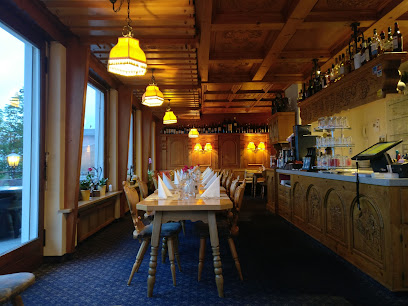
Kokon
Discover authentic Italian flavors at Kokon in Ruggell—where every dish tells a story of tradition and passion.
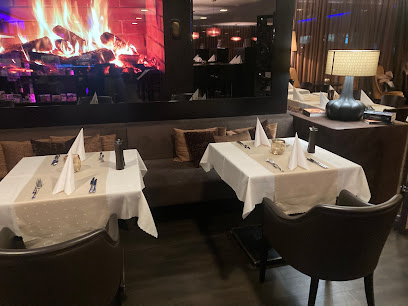
Torkel
Discover authentic Swiss flavors at Torkel in Vaduz—where tradition meets taste in a cozy setting.
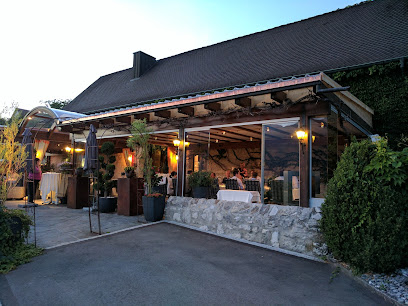
Markets, malls and hidden boutiques
Migros-Supermarkt - Schaan
Experience local flavors and convenience at Migros-Supermarkt in Schaan, your go-to grocery store for fresh produce and local specialties.
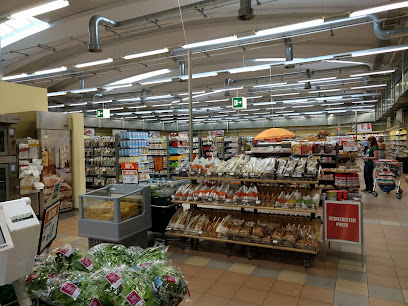
Denner Satellit
Explore Denner Satellit in Schaan for a budget-friendly shopping experience featuring fresh produce and local Swiss specialties.
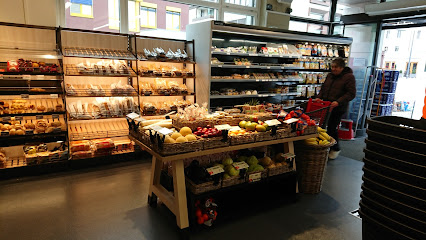
FL1 Shop
Explore Schaan with confidence; FL1 Shop ensures you're connected with top-notch mobile and internet services tailored for tourists.
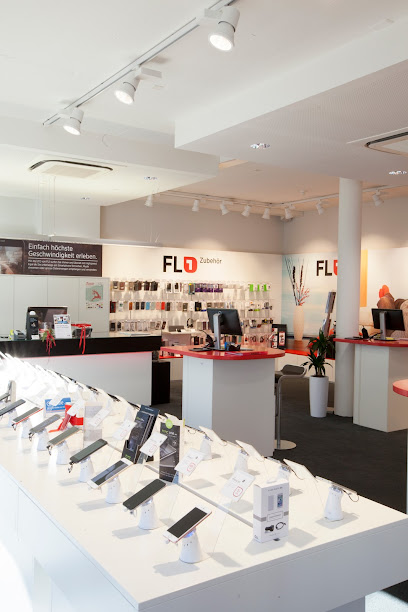
Hoi Liechtenstein - Souvenir Boutique
Explore the charm of Liechtenstein at Hoi, Vaduz's premier souvenir boutique offering local crafts, gourmet foods, and exquisite wines.
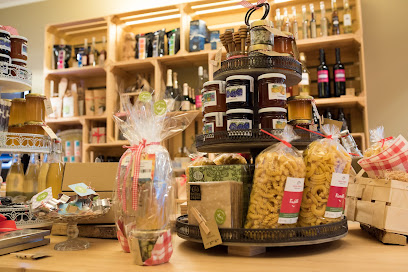
Hilti Store Schaan
Explore the Hilti Store Schaan for top-notch tools and home improvement solutions in a welcoming atmosphere.
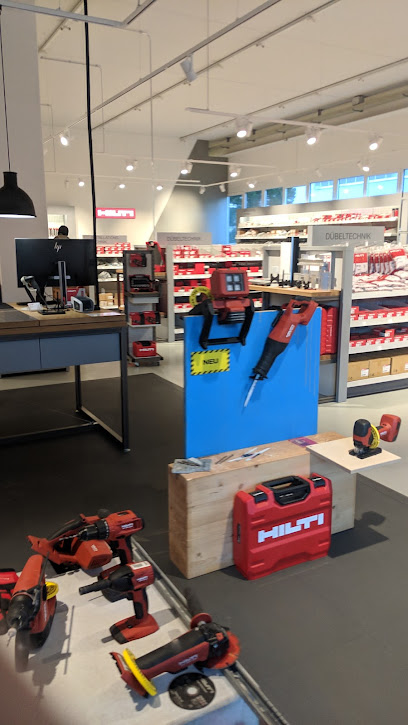
LKW EnergieLaden
Discover a wide range of electrical supplies at LKW EnergieLaden, Schaan's trusted electrical supply store for professionals and DIY enthusiasts alike.
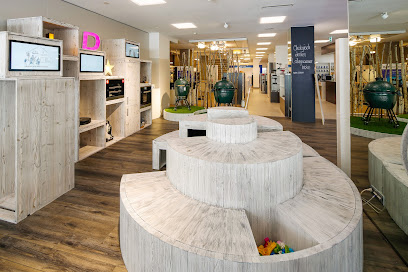
Musikhaus AG
Explore Musikhaus AG in Schaan, a premier destination for musical instruments, rentals, and expert repairs, perfect for every music lover.

PARTYBOX Anstalt
Explore PARTYBOX Anstalt, your ultimate destination for costumes, party supplies, and fireworks in Schaan, Liechtenstein.
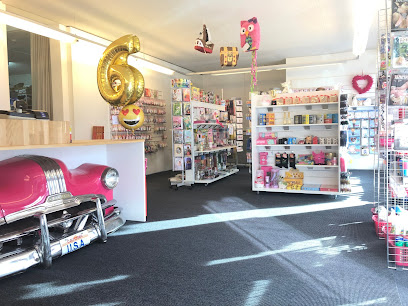
Central Plaza
Explore Central Plaza in Vaduz for unique gifts and stunning watches that capture the essence of Liechtenstein's culture.
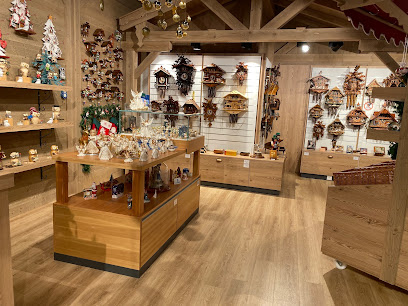
Schuh Fehr Establishment
Explore the finest collection of footwear and sporting goods at Schuh Fehr Establishment in Schaan, where quality meets style.
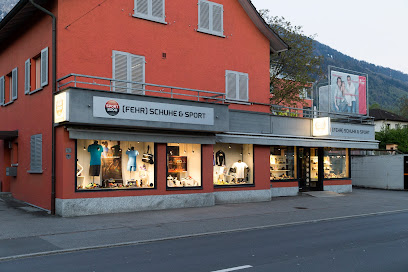
k kiosk
Discover k kiosk in Schaan for a quick snack, refreshing drinks, and a great selection of newspapers and magazines.
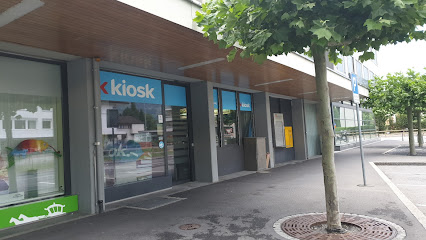
Dunja A. Sprenger - Jones Vaduz
Discover unique dresses at Dunja A. Sprenger, Vaduz's premier dress store, offering personalized service and a stunning selection for every occasion.
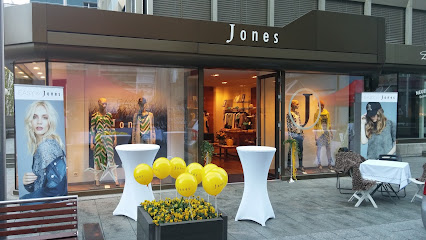
BEAUTY VILLA LIECHTENSTEIN
Discover the finest beauty products at Beauty Villa Liechtenstein, where quality meets luxury in a captivating shopping experience.
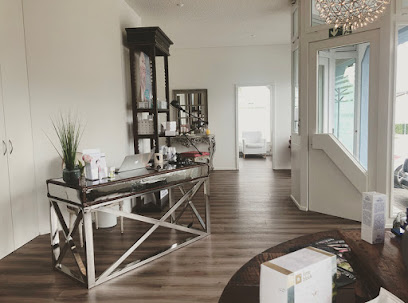
Philatelie Liechtenstein
Explore the captivating world of stamps at Philatelie Liechtenstein, where history and culture meet through the art of philately.
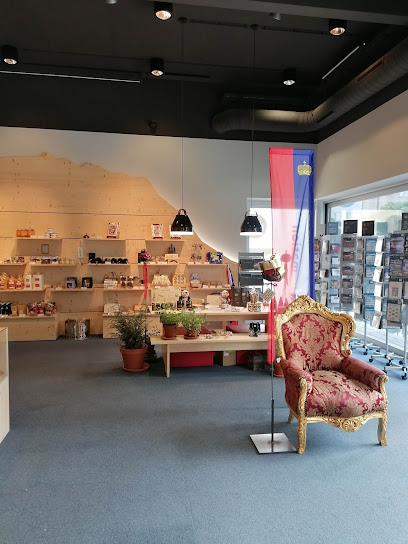
Guguseli
Discover the latest trends in children's fashion at Guguseli, Schaan's premier children's clothing store, where style meets comfort for your little ones.

Essential bars & hidden hideouts
Restaurant Lio
Experience the finest culinary delights at Restaurant Lio in Schaan, where exquisite flavors and exceptional service await every visitor.
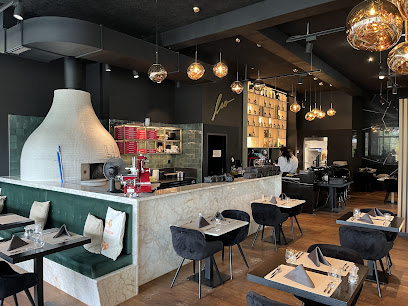
Restaurant Forum
Experience the authentic flavors of Switzerland at Restaurant Forum in Schaan, where every dish tells a story of tradition and taste.
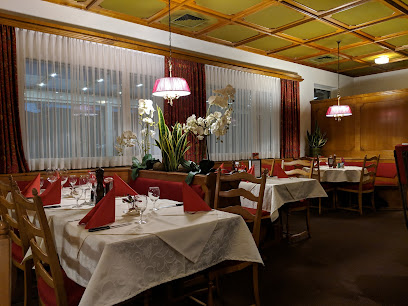
PUR - Restaurant & Bar
Experience the ultimate barbecue and bar culture at PUR - Restaurant & Bar in Schaan, where exceptional flavors meet vibrant atmosphere.
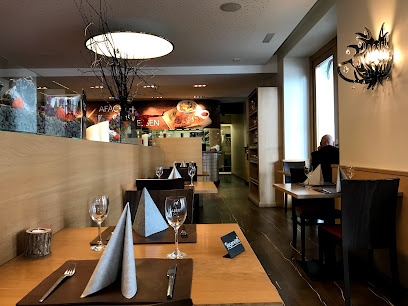
Restaurant Rössle
Discover authentic Liechtenstein cuisine at Restaurant Rössle in Schaan, where fresh ingredients meet warm hospitality.
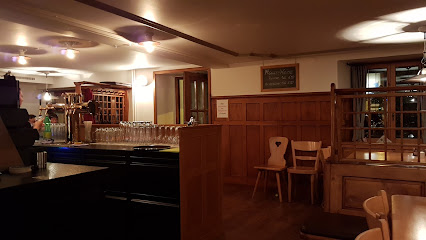
Scanaua Restaurant & Bar
Experience the culinary artistry at Scanaua Restaurant & Bar, where every meal is a celebration of flavor in the heart of Schaan, Liechtenstein.
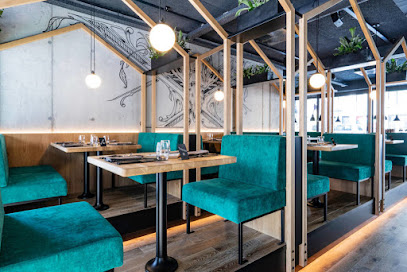
Black Pearl Bar
Experience the vibrant nightlife of Schaan at Black Pearl Bar, a cocktail haven offering expertly crafted drinks and a lively atmosphere.
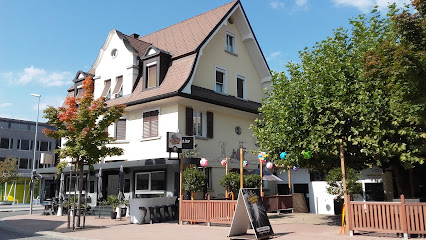
Liechtensteiner Braustube
Experience the flavors of Liechtenstein at Liechtensteiner Braustube – where tradition meets taste in a cozy setting.
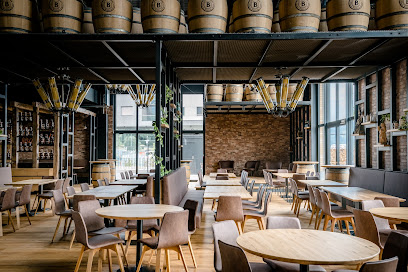
St. Martins Pub am Platz
Discover the vibrant atmosphere of St. Martins Pub am Platz, an Irish pub in Eschen offering delightful food and a great selection of drinks.
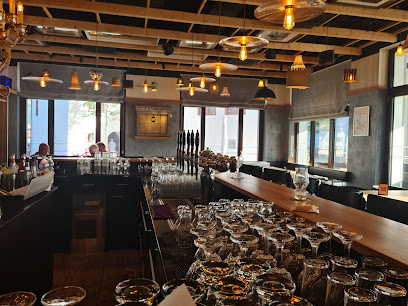
Restaurant Kuro
Experience the vibrant Asian flavors at Restaurant Kuro in Schaan, where culinary tradition meets modern creativity for an unforgettable dining experience.
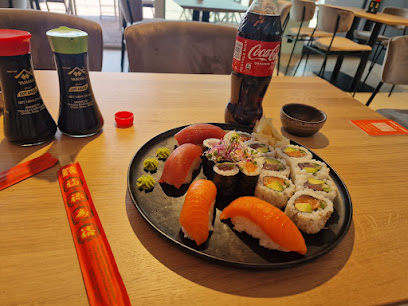
La Piazza Bar & Bistro
Discover La Piazza Bar & Bistro in Schaan for a delightful mix of local beverages, light bites, and a cozy atmosphere perfect for travelers.
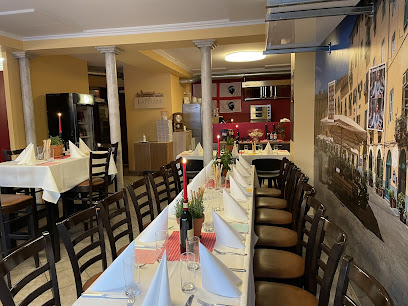
WY Weinbar
Experience the best of wine culture at WY Weinbar, a cozy bar in Schaan offering exquisite wines and delectable bites in a charming atmosphere.
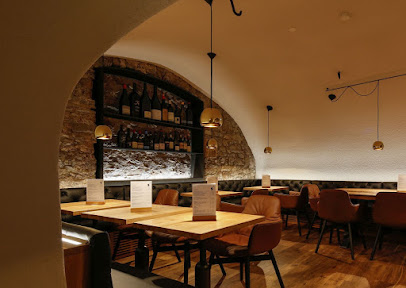
Ethno Cafe Bar
Discover the lively Ethno Cafe Bar in Schaanwald - a cultural gem offering a diverse drink selection and a vibrant atmosphere, perfect for all tastes.
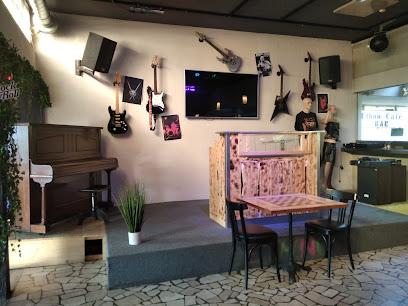
Long John Bar
Experience the lively nightlife and welcoming ambiance at Long John Bar in Schaan, where great drinks and unforgettable moments await.
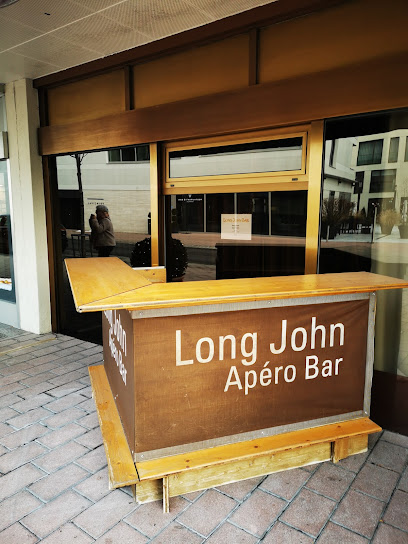
Coconat Thai Kitchen
Savor the authentic flavors of Thailand at Coconat Thai Kitchen in Schaan, where every dish tells a story of culinary tradition.
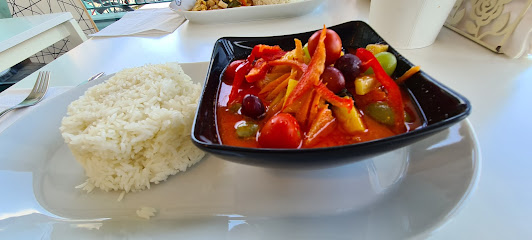
Andy's Bunker
Discover Andy's Bunker in Schaan, a cozy bar offering an eclectic atmosphere, delightful drinks, and vibrant nightlife experiences.

Local Phrases
-
- HelloHallo
[HAH-loh] - GoodbyeAdieu
[ah-DYOO] - YesJa
[yah] - NoNein
[nine] - Please/You're welcomeBitte
[BIT-tuh] - Thank youDanke
[DAHN-kuh] - Excuse me/SorryEntschuldigung
[ENT-shool-dee-goong] - How are you?Wie geht es dir?
[vee gayt es deer] - Fine. And you?Gut. Und du?
[goot oont doo] - Do you speak English?Sprichst du Englisch?
[shprikhst doo ENG-lish] - I don't understandIch verstehe nicht
[ikh fer-SHTAY-uh nikht]
- HelloHallo
-
- I'd like to see the menu, pleaseIch möchte die Speisekarte sehen, bitte
[ikh merkhte dee SHPYE-zuh-kahr-tuh zay-en, BIT-tuh] - I don't eat meatIch esse kein Fleisch
[ikh EHS-suh kine flysh] - Cheers!Prost!
[prohst] - I would like to pay, pleaseIch möchte bitte bezahlen
[ikh merkhte BIT-tuh bezah-len]
- I'd like to see the menu, pleaseIch möchte die Speisekarte sehen, bitte
-
- Help!Hilfe!
[HILL-fuh] - Go away!Geh weg!
[gay veg] - Call the Police!Rufen Sie die Polizei!
[ROOF-en zee dee poh-LEE-tsy] - Call a doctor!Rufen Sie einen Arzt!
[ROOF-en zee EYE-nen ahrts] - I'm lostIch habe mich verirrt
[ikh HAH-buh meesh fer-EERT] - I'm illIch bin krank
[ikh bin krahngk]
- Help!Hilfe!
-
- I'd like to buy...Ich möchte kaufen...
[ikh merkhte KOW-fen] - I'm just lookingIch schaue nur
[ikh SHOW-uh noor] - How much is it?Wie viel kostet es?
[vee feel KO-stet es] - That's too expensiveDas ist zu teuer
[dahs ist tsoh TOY-er] - Can you lower the price?Können Sie den Preis senken?
[KERN-en zee den prees ZEN-ken]
- I'd like to buy...Ich möchte kaufen...
-
- What time is it?Wie spät ist es?
[vee shpayt ist es] - It's one o'clockEs ist ein Uhr
[es ist eyen oor] - Half past (10)Halb zehn
[halb tsayn] - MorningMorgen
[MOHR-gen] - AfternoonNachmittag
[NAHCH-mit-tahg] - EveningAbend
[AH-bent] - YesterdayGestern
[GEHS-tern] - TodayHeute
[HOY-teh] - TomorrowMorgen
[MOHR-gen] - 1Eins
[eyns] - 2Zwei
[tsvay] - 3Drei
[dry] - 4Vier
[feer] - 5Fünf
[foonf] - 6Sechs
[zeks] - 7Sieben
[zee-ben] - 8Acht
[ahkt] - 9Neun
[noyn] - 10Zehn
[tsayn]
- What time is it?Wie spät ist es?
-
- Where's a/the...?Wo ist ein/der...?
[voh ist eyen/dehr] - What's the address?Was ist die Adresse?
[vahs ist dee ah-DREHS-uh] - Can you show me (on the map)?Können Sie mir zeigen (auf der Karte)?
[KERN-en zee meer ZY-gen (owf dehr KAR-teh)] - When's the next (bus)?Wann kommt der nächste (Bus)?
[vahn kohmt dehr NIKH-stuh (boos)] - A ticket (to ....)Eine Fahrkarte (nach ....)
[ey-nuh FAHR-kahr-teh (nahkh)]
- Where's a/the...?Wo ist ein/der...?
History of Schaan
-
Schaan’s history dates back to ancient times, with archaeological findings indicating settlement as early as the Bronze Age. The area was later influenced by Roman civilization, as evidenced by the remains of Roman villas and artifacts discovered in the region.
-
During the medieval period, Schaan was part of the Holy Roman Empire. The region was dominated by various noble families, and the establishment of vineyards and agriculture became prominent. The influence of the Church also grew, evidenced by the construction of the Church of St. Laurentius, which remains a key historical landmark.
-
In the early 18th century, the Principality of Liechtenstein was established when the Liechtenstein family purchased the Lordship of Schellenberg and the County of Vaduz. Schaan, as part of these territories, became integral to the formation of the new state. This period marked the beginning of Schaan's development as a central hub in the principality.
-
The 19th century brought industrialization to Schaan, transforming it from an agrarian society into an emerging industrial center. Factories and businesses began to sprout, leading to significant population growth and economic development. The introduction of the railway in 1872 further boosted Schaan's connectivity and industrial capacity.
-
Despite Liechtenstein's neutrality during both World Wars, Schaan was not immune to the economic impacts of the global conflicts. However, post-World War II, Schaan experienced a remarkable economic resurgence, driven by an influx of businesses and manufacturing industries. The establishment of companies like Hilti and Ivoclar Vivadent played a pivotal role in this economic boom.
-
Schaan has developed a vibrant cultural scene, with numerous cultural institutions and events. The TAK Theater Liechtenstein and the SAL (Säntis Arena Liechtenstein) host a variety of performances, from classical concerts to contemporary theater. The town’s annual Fasnacht (Carnival) is a colorful and lively tradition that attracts visitors from across the region.
-
Today, Schaan stands as the largest municipality in Liechtenstein, blending historical heritage with modern amenities. It serves as a key economic and cultural center, preserving its historical landmarks while embracing contemporary development. The town continues to grow, maintaining a balance between its rich past and progressive future.
Schaan Essentials
-
Schaan is located in the northern part of Liechtenstein, near the Swiss border. The nearest major airport is Zurich Airport (ZRH) in Switzerland, approximately 115 kilometers away. From Zurich, you can take a train to Sargans or Buchs, and then a short bus or taxi ride to Schaan. Alternatively, you can drive from Zurich to Schaan, which takes around 1.5 hours by car.
-
Schaan has a well-developed public transportation system, including buses and trains that connect to other parts of Liechtenstein and neighboring countries. Local buses are operated by the Liechtenstein Bus Company (LBA) and are a convenient way to get around. Taxis are also available, and renting a car can be a good option if you plan to explore the region more extensively. Biking is popular, and there are well-maintained bike paths throughout the town.
-
The official currency in Liechtenstein is the Swiss Franc (CHF). Credit and debit cards are widely accepted in hotels, restaurants, and shops. ATMs are plentiful, so you can easily withdraw cash if needed. It is advisable to carry some cash for small purchases, especially in more rural areas.
-
Schaan is generally very safe for tourists, with low crime rates. However, it is always wise to take standard precautions such as not leaving your belongings unattended and being aware of your surroundings. There are no specific areas in Schaan with high crime rates targeting tourists.
-
In case of emergency, dial 112 for immediate assistance. This is the emergency number for police, fire, and medical services. There is a local police station and a medical center in Schaan. It is also recommended to have travel insurance that covers medical emergencies. Pharmacies are readily available for minor health issues.
-
Fashion: Do dress smart-casual, especially when dining out or visiting cultural sites. Avoid overly casual or revealing clothing. Religion: Do respect local customs and traditions. When visiting churches, dress modestly and keep noise to a minimum. Public Transport: Do be courteous and offer your seat to elderly passengers. Don't eat or drink on public transport. Greetings: Do greet people with a handshake or a nod of the head. It is polite to say 'Grüezi' (hello) or 'Hoi' (hi). Eating & Drinking: Do try local delicacies and be open to new foods. Don't refuse hospitality, as it is considered impolite.
-
To experience Schaan like a local, visit the weekly farmers' market where you can buy fresh local produce and handmade goods. Spend time in the local cafes and engage in conversations with residents, who are generally friendly and welcoming. Don't miss the opportunity to explore the beautiful hiking trails around Schaan, such as the Eschnerberg Trail, which offers stunning views of the surrounding landscape.
Trending Landmark in Schaan
-
Vaduz Castle
-
Burg Gutenberg
-
Kathedrale St. Florin
-
Liechtenstein Center
-
Vaduz Citytrain AG
-
Alte Rheinbrücke
-
Rheinpark Stadium
-
Kunstmuseum Liechtenstein
-
Vogelparadies Birka
-
Jugendherberge Schaan-Vaduz
-
Liechtensteinisches LandesMuseum
-
Postmuseum Vaduz
-
Cellars of the Prince of Liechtenstein
-
TAK Theater Liechtenstein
-
Film Club in Takino
Nearby Cities to Schaan
-
Things To Do in Vaduz
-
Things To Do in Eschen
-
Things To Do in Gamprin
-
Things To Do in Triesenberg
-
Things To Do in Mauren
-
Things To Do in Schellenberg
-
Things To Do in Ruggell
-
Things To Do in Balzers
-
Things To Do in Dornbirn
-
Things To Do in Bregenz
-
Things To Do in Arosa
-
Things To Do in Davos
-
Things To Do in St. Anton am Arlberg
-
Things To Do in Zurich
-
Things To Do in St. Moritz




